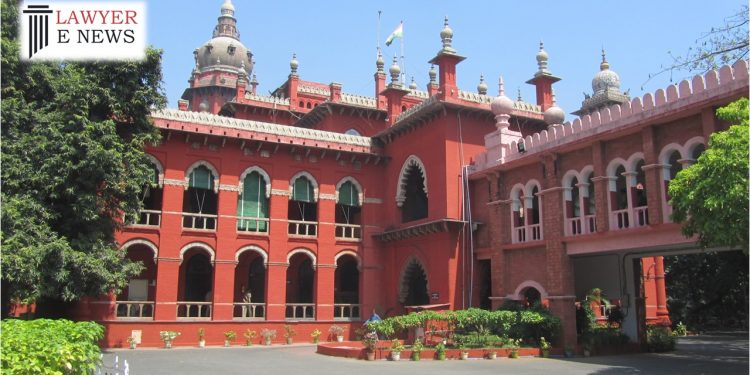-
by Admin
15 February 2026 5:35 AM



Madras High Court overturns lower court acquittals, emphasizing the importance of legally enforceable debt and proper burden of proof under Negotiable Instruments Act.
The Madras High Court has reversed the acquittal of the accused in a high-profile cheque bounce case, delivering a significant judgment that underscores the crucial role of legally enforceable debts and the evidentiary burden in cases under Section 138 of the Negotiable Instruments Act, 1881. The bench, led by Justice R. Hemalatha, found that both the trial and appellate courts erred in interpreting the evidence and legal presumptions, leading to the wrongful acquittal of the accused.
Credibility of Evidence and Legal Presumptions: The High Court critiqued the lower courts for misinterpreting the evidence and failing to properly apply the legal presumptions under Sections 118 and 139 of the Negotiable Instruments Act. Justice Hemalatha stated, “The presumption under Sections 118 and 139 of the N.I. Act regarding the existence of a legally enforceable debt or liability was not adequately rebutted by the accused, and the lower courts’ conclusions were perverse.”
Witness Testimonies and Onus of Proof: Addressing the issue of the cheques issued as security, the court observed, “The complainant’s evidence was misinterpreted by the trial court, leading to an erroneous conclusion that the accused had successfully rebutted the presumption. The burden of proof lies with the accused to prove that the cheques were not issued for any legally enforceable debt.”
The judgment elaborated on the principles of evaluating evidence and the burden of proof in cheque bounce cases. It emphasized that the failure of the accused to issue a reply notice in response to the legal notice from the complainant raised suspicions about their intentions. The court remarked, “The return of the cheques for ‘insufficient funds’ rather than ‘payment stopped by the drawer’ or similar reasons indicates that the accused’s plea of dispute over the payment is an afterthought.”
Justice Hemalatha highlighted, “Assuming that the accused firm really had a reason to return the cheques or justify the return, the legal notice issued by the complainant firm ought to have been accepted and a proper reply could have been given at the first instance to clarify its stance.”
The Madras High Court’s decision to convict the accused under Section 138 of the N.I. Act reinforces the judiciary’s commitment to upholding the principles of justice in financial transactions. This judgment serves as a stern reminder of the importance of legally enforceable debts and the rigorous application of legal presumptions and evidence in cheque bounce cases. The ruling is expected to influence future cases, emphasizing the accountability of issuers of cheques and the necessity of maintaining integrity in financial dealings.
Date of Decision: 20th June 2024
M/s. A.D.J. Shipping Company Pvt. Ltd. Vs. M/s. N.S. Rathinam & Sons
